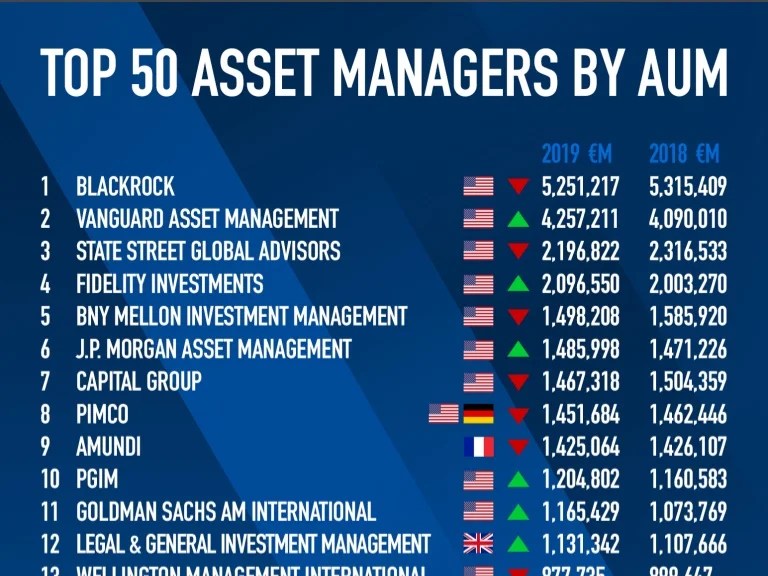Diving into the world of Asset management firms, we uncover the inner workings of these financial powerhouses and their crucial role in the market. Get ready for a journey filled with insights and surprises that will leave you wanting more.
From managing diverse assets to implementing cutting-edge strategies, Asset management firms play a vital role in shaping the financial landscape for investors and businesses alike.
Overview of Asset Management Firms
Asset management firms are like the financial wizards of the modern world, handling all kinds of assets like stocks, bonds, real estate, and more to help investors grow their dough and make wise financial moves. These firms are the go-to guys for businesses and individuals looking to make their money work harder for them.
Types of Assets Managed
When it comes to assets, these firms ain’t messin’ around. They manage a diverse range of assets, including stocks, bonds, real estate, commodities, and even alternative investments like private equity and hedge funds. It’s like a financial buffet, but with serious cash on the line.
Importance of Asset Management Firms
Asset management firms are the secret sauce behind many successful investment portfolios. They help investors navigate the choppy waters of the financial markets, diversify their holdings, and maximize returns while minimizing risks. Without these firms, many investors would be lost at sea, trying to navigate the complex world of finance on their own.
Services Offered by Asset Management Firms

Asset management firms offer a variety of services to help clients manage their investments and achieve their financial goals. These services can range from investment advisory to portfolio management and financial planning.
Investment Advisory
- Asset allocation strategies
- Market research and analysis
- Risk assessment and management
Portfolio Management
- Building and maintaining investment portfolios
- Rebalancing portfolios based on market conditions
- Monitoring and adjusting investments
Financial Planning
- Retirement planning
- Estate planning
- Tax planning
Comparing Different Types of Asset Management Firms
Asset management firms can be categorized into traditional, robo-advisors, and boutique firms. Traditional firms offer personalized investment advice and management. Robo-advisors use algorithms to provide automated investment services. Boutique firms specialize in niche markets or specific investment strategies.
Examples of How Asset Management Firms Help Clients
Asset management firms assist clients in setting financial goals, creating investment plans, and monitoring progress towards those goals. They provide expertise and guidance to help clients make informed investment decisions.
Investment Strategies Utilized by Asset Management Firms
When it comes to investment strategies, asset management firms employ a variety of approaches to help their clients achieve their financial goals. These strategies are carefully crafted based on market conditions, client risk tolerance, and investment objectives.
Active vs. Passive Investing
One common investment strategy used by asset management firms is the choice between active and passive investing. Active investing involves actively buying and selling securities in an attempt to outperform the market, while passive investing involves simply tracking a market index. Each approach has its own set of benefits and risks.
Value Investing
Another popular strategy is value investing, where asset managers look for undervalued securities that have the potential for long-term growth. By purchasing these securities at a discount, investors aim to capitalize on their future appreciation.
Risk Management Techniques
Asset management firms use various risk management techniques to protect client investments. This includes diversification, asset allocation, and hedging strategies. Diversification involves spreading investments across different asset classes to reduce risk, while asset allocation aims to balance risk and return by allocating assets based on client goals and risk tolerance. Hedging strategies, such as options and futures contracts, are used to mitigate potential losses.
Role of Diversification
Diversification plays a crucial role in asset management strategies as it helps to spread risk across different investments. By diversifying a portfolio, asset managers can reduce the impact of volatility in any single asset or sector. This can help protect against significant losses and provide a more stable return over time.
Technology and Innovation in Asset Management
In today’s digital age, asset management firms are constantly leveraging technology to revolutionize their services and stay ahead in the competitive market. The integration of innovative tools and platforms has become essential for efficient investment analysis and decision-making processes.
Utilization of Big Data Analytics
Asset management firms are increasingly utilizing big data analytics to gain valuable insights into market trends, customer behavior, and investment opportunities. By analyzing vast amounts of data in real-time, these firms can make more informed decisions and adjust their investment strategies accordingly.
Robo-Advisors and Automated Trading
Robo-advisors and automated trading algorithms have become popular tools used by asset management firms to streamline the investment process. These technologies can analyze market trends, execute trades, and rebalance portfolios automatically, saving time and reducing human error.
Artificial Intelligence and Machine Learning
The impact of artificial intelligence (AI) and machine learning on asset management practices cannot be overlooked. These technologies enable firms to predict market movements, identify patterns, and optimize investment strategies with greater accuracy. By harnessing the power of AI, asset management firms can enhance their risk management and portfolio performance.
Blockchain Technology for Security
Blockchain technology has also been adopted by asset management firms to enhance security and transparency in transactions. By utilizing blockchain for record-keeping and smart contracts, firms can ensure the integrity of data and streamline the settlement process.